Introduction
Our Green Library Team has created the collection with the aim of bringing together in the virtual space the sustainability-related materials placed in different physical library locations of Eötvös Loránd University (ELTE). At the same time, we also would like to draw attention to the wide range of sustainability and environmental documents and information resources available in the ELTE libraries.
By focusing on a few key topics, we recommend some books from the Green Library Collection. If you click the book titles, you'll be taken to the online catalogue (ELTEfind) where specific information about the location and availability of items can be found. After each blurb, linked keywords lead to the ELTEfind for further documents on the topic.
Highlighted topics
Highlighted topics
Climatic changes
Human ecology
Environmental policy
Environmental education
Environmental ethics
Environmental protection
Environmental protection in literature
Environmental Psychology
Recommended books
Climatic changes
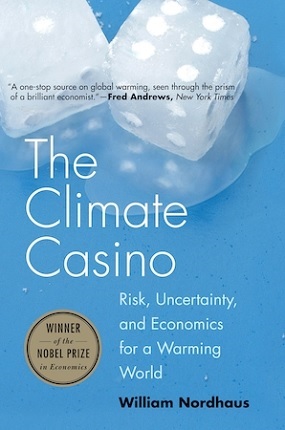
Title: The climate casino: risk, uncertainty, and economics for a warming world
Author: Nordhaus, William
Published: New Haven : Yale Univ. Press, 2013
Blurb: The 2018 Nobel laureate for economics analyzes the politics and economics of the central environmental issue of today and points the way to real solutions
Climate change is profoundly altering our world in ways that pose major risks to human societies and natural systems. We have entered the Climate Casino and are rolling the global-warming dice, warns economist William Nordhaus. But there is still time to turn around and walk back out of the casino, and in this essential book the author explains how.
Bringing together all the important issues surrounding the climate debate, Nordhaus describes the science, economics, and politics involved—and the steps necessary to reduce the perils of global warming. Using language accessible to any concerned citizen and taking care to present different points of view fairly, he discusses the problem from start to finish: from the beginning, where warming originates in our personal energy use, to the end, where societies employ regulations or taxes or subsidies to slow the emissions of gases responsible for climate change.
Nordhaus offers a new analysis of why earlier policies, such as the Kyoto Protocol, failed to slow carbon dioxide emissions, how new approaches can succeed, and which policy tools will most effectively reduce emissions. In short, he clarifies a defining problem of our times and lays out the next critical steps for slowing the trajectory of global warming.
Further documents in ELTEfind:
Human ecology
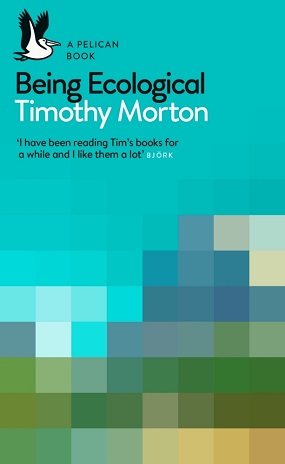
Title: Being ecological
Author: Morton, Timothy
Published: London : Pelican, 2018
Blurb: Don't care about ecology? This book is for you. Timothy Morton, who has been called 'Our most popular guide to the new epoch' (Guardian), sets out to show us that whether we know it or not, we already have the capacity and the will to change the way we understand the place of humans in the world, and our very understanding of the term 'ecology'. A cross-disciplinarian who has collaborated with everyone from Björk to Hans Ulrich Obrist, Morton is also a member of the object-oriented philosophy movement, a group of forward-looking thinkers who are grappling with modern-day notions of subjectivity and objectivity, while also offering fascinating new understandings of Heidegger and Kant. Calling the volume a book containing 'no ecological facts', Morton confronts the 'information dump' fatigue of the digital age, and offers an invigorated approach to creating a liveable future.
Further documents in ELTEfind:
Environmental policy
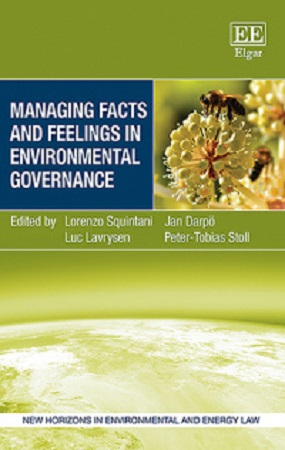
Title: Managing facts and feelings in environmental governance
Editors: Lorenzo Squintani [et al.]
Published: Cheltenham, UK ; Northampton, MA : Edward Elgar, 2019
Blurb: This timely book brings to the foreground the considerable tensions between the need to engage the public in the importance of environmental governance and the need of professional expertise to address the issues which arise. In doing so, it highlights that not only can public opinion deviate from scientific knowledge, but scientific knowledge itself can be lacunose or contradicting. Drawing together insights from some of the leading scholars, this engaging work will provide guidance to decision makers, including judges, on how to govern public participation procedures and professional expertise and the role that the precautionary principle can play in this regard.
Further documents in ELTEfind:
Environmental education
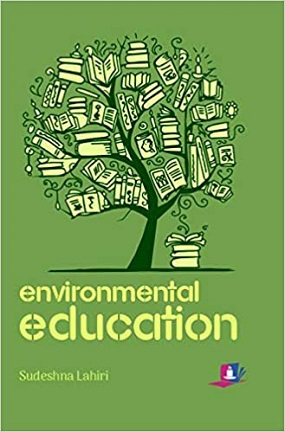
Title: Environmental education
Editor: Lahiri, Sudeshna
Published: New Delhi : Studera Press, 2019
Blurb: The book deals with recent trends in Environmental Education and its relevance in different countries and stream of studies. The chapters have extensively elaborated the Indian and international legal provisions and policies for the preservation and protection of environment and ecosystem.
Further documents in ELTEfind:
Environmental ethics
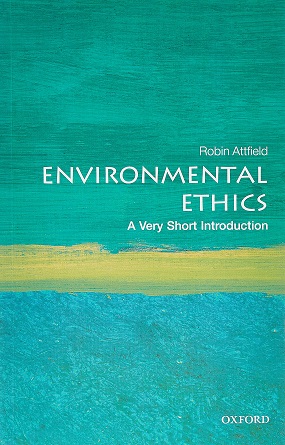
Title: Environmental ethics : a very short introduction
Author: Attfield, Robin
Published: Oxford : Oxford University Pres, cop. 2018
Blurb: Explains the origins of environmental ethics as a field Explores the ethics of key issues today, such as climate change, species and habitat loss, and pollution Relates real life environmental judgements to prevailing ethical theories Considers the relationship between debates on sustainability and UN Sustainable Development Goals, and shows how discussions about the environmental role of religion can issue in a constructive form of responsible stewardship.
Further documents in ELTEfind:
Environmental protection
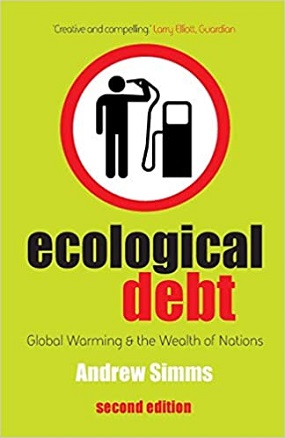
Title: Ecological debt: the health of the planet and the wealth of nations
Author: Simms, Andrew
Published: London ; Ann Arbor, Mich. : Pluto, 2005
Blurb: Blurb: Millions of people in the West are running up huge ecological debts: from the amount of oil and coal that we burn to heat our houses and run our cars, to what we consume and the waste that we create, the impact of our lifestyles is felt worldwide. Whilst these debts go unpaid, millions more living in poverty in the majority world suffer the burden of paying dubious foreign financial debts. Ecological Debt explores this great paradox of our age. Highlighting how and why this has happened, it also shows what can be done differently in the future. Now updated throughout, this is a passionate account of the steps we can take to stop pushing the planet to the point of environmental bankruptcy.
Further documents in ELTEFind:
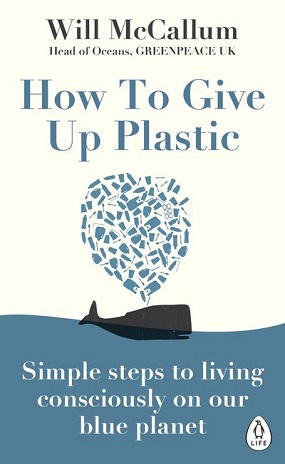
Title: How to give up plastic: a guide to changing the world, one plastic bottle at a time
Author: McCallum, Will
Published: [S. l.] : Penguin, 2019
Blurb:This book offers a handy guide for what we can do in our own homes, communities and workplaces to start bringing about the end of our plastic dependent age. It covers all ground, from easy wins such as using a reusable keep cup for your morning coffee, to lesser-known hacks like fixing a filter to your washing machine to catch some of the mircofibres released from your clothes (microfibers are responsible for up to 30% of plastic in the ocean). But it will also help you to be a part of big changes, offering insights into how to lobby for impactful legislation and how to put pressure on big corporations to reduce the use of plastic on a global scale.
Further documents in ELTEFind:
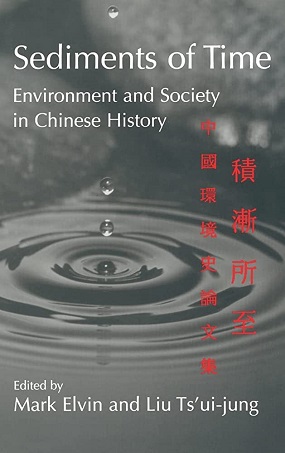
Title: Sediments of time : environment and society in Chinese history
Editors: Elvin, Mark ; Liu, Tsʻui-jung
Published: Cambridge : Cambridge University Press, 1998
Blurb: This collection of essays was the first relatively comprehensive survey of the environmental history of China. Written by some of the world's leading Western and Chinese experts, Sediments of Time crystallises a new and distinct field of scholarship that studies what happens when human social systems interact with the rest of the natural world. This book shows how deforestation, land-reclamation, settlement, and water-control, when mixed with an ever-changing climate, shape a distinct and often precarious environment. Pioneering essays explore new methodologies of historical environmental research, comparative perspectives setting China in the context of the West and Japan, and the impact of the early modern ecological transformation on the spread of diseases such as cholera and tuberculosis. This is an indispensable book for anyone who wants to understand either the foundations of modern China, or the deeper origins of many of China's most daunting contemporary challenges.
Further documents in ELTEfind:
Environmental protection in literature
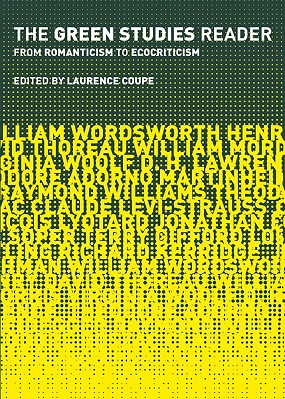
Title: The green studies reader: from Romanticism to ecocriticism
Editor: Coupe, Laurence
Published: London; New York : Routledge, 2000
Blurb: Green Studies is a booming area for study and The Green Studies Reader is a fantastically comprehensive selection of critical texts which address the connection between ecology, culture, and literature. It offers a complete guide to the growing area of 'ecocriticism' and a wealth of material on green issues from the romantic period to the present.Included are extracts from today's leading ecocritics and figures from the past who pioneered a green approach to literature and culture. This Reader sets the agenda for Green Studies and encourages a reassessment of development of criticism and offers readers a radical view of its future.
Further documents in ELTEfind:
Environmental protection in literature
Environmental psychology
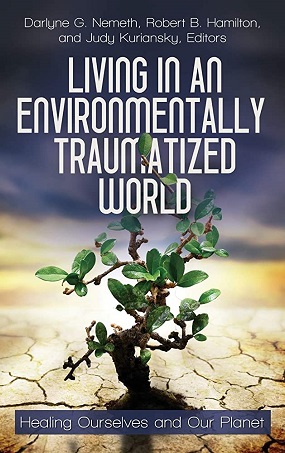
Title: Living in an environmentally traumatized world: healing ourselves and our planet
Editors: Nemeth, Darlyne G.; Hamilton, Robert B.; Kuriansky, Judy
Published: Santa Barbara : Praeger, 2012
Blurb: Living in an Environmentally Traumatized World: Healing Ourselves and Our Planet discusses recent environmental events and examines the reasons why the resulting changes are inevitable. The authors assert that people experience six universal stages when they suffer from environmental trauma: shock, survivor mode, basic needs, awareness of loss, susceptibility to spin and fraud, and resolution. The book presents coping strategies for navigating negative ecological shifts, and provides a plan of action for responsibly managing our environment. Additionally, profiles of indigenous people who endure under environmental adversity provide real-world examples of survival.
Further documents in ELTEFind:
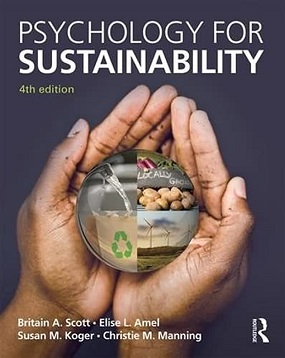
Title: Psychology for sustainability
Author: Scott, Britain A.
Published: New York : Routledge, 2016
Blurb: Psychology for Sustainability, 4th Edition -- known as Psychology of Environmental Problems: Psychology for Sustainability in its previous edition -- applies psychological theory and research to so-called "environmental" problems, which actually result from human behavior that degrades natural systems. This upbeat, user-friendly edition represents a dramatic reorganization and includes a substantial amount of new content that will be useful to students and faculty in a variety of disciplines―and to people outside of academia, as well.
Further documents in ELTEfind:
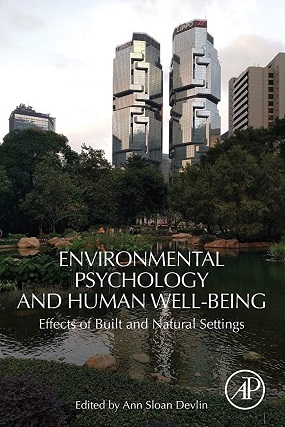
Title: Environmental psychology and human well-being : effects of built and natural settings
Editor: Devlin, Ann Sloan
Published: London : Academic Press, 2018
Blurb: Environmental Psychology and Human Well-Being: Effects of Built and Natural Settings provides a better understanding of the way in which mental and physical well-being is affected by physical environments, along with insights into how the design of these environments might be improved to support better health outcomes. The book reviews the history of the field, discusses theoretical constructs in guiding research and design, and provides an up-to-date survey of research findings. Core psychological constructs, such as personal space, territoriality, privacy, resilience, stress, and more are integrated into each environment covered.
Further documents in ELTEfind:
